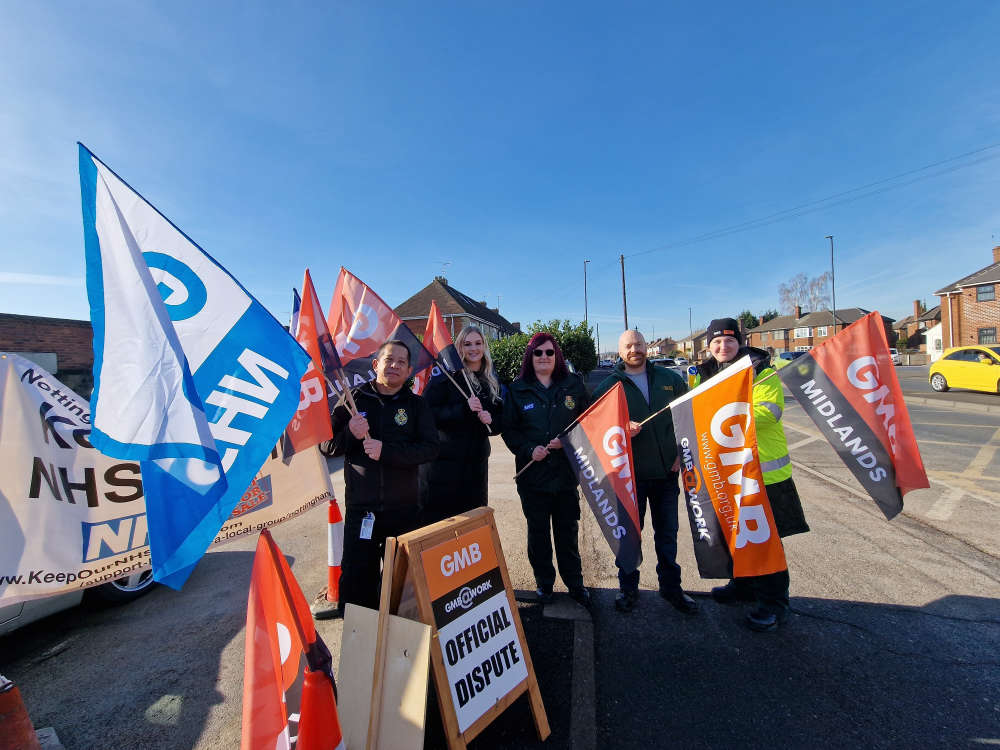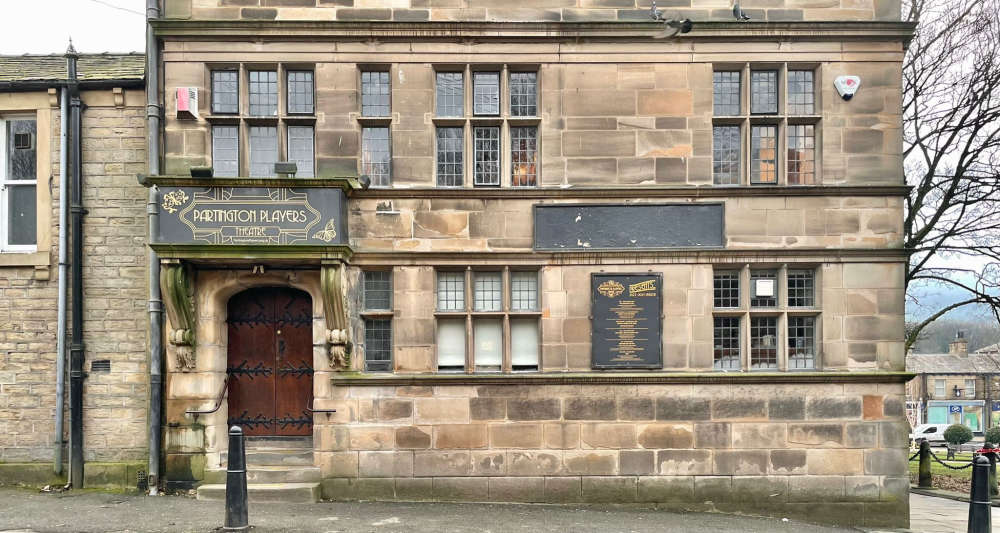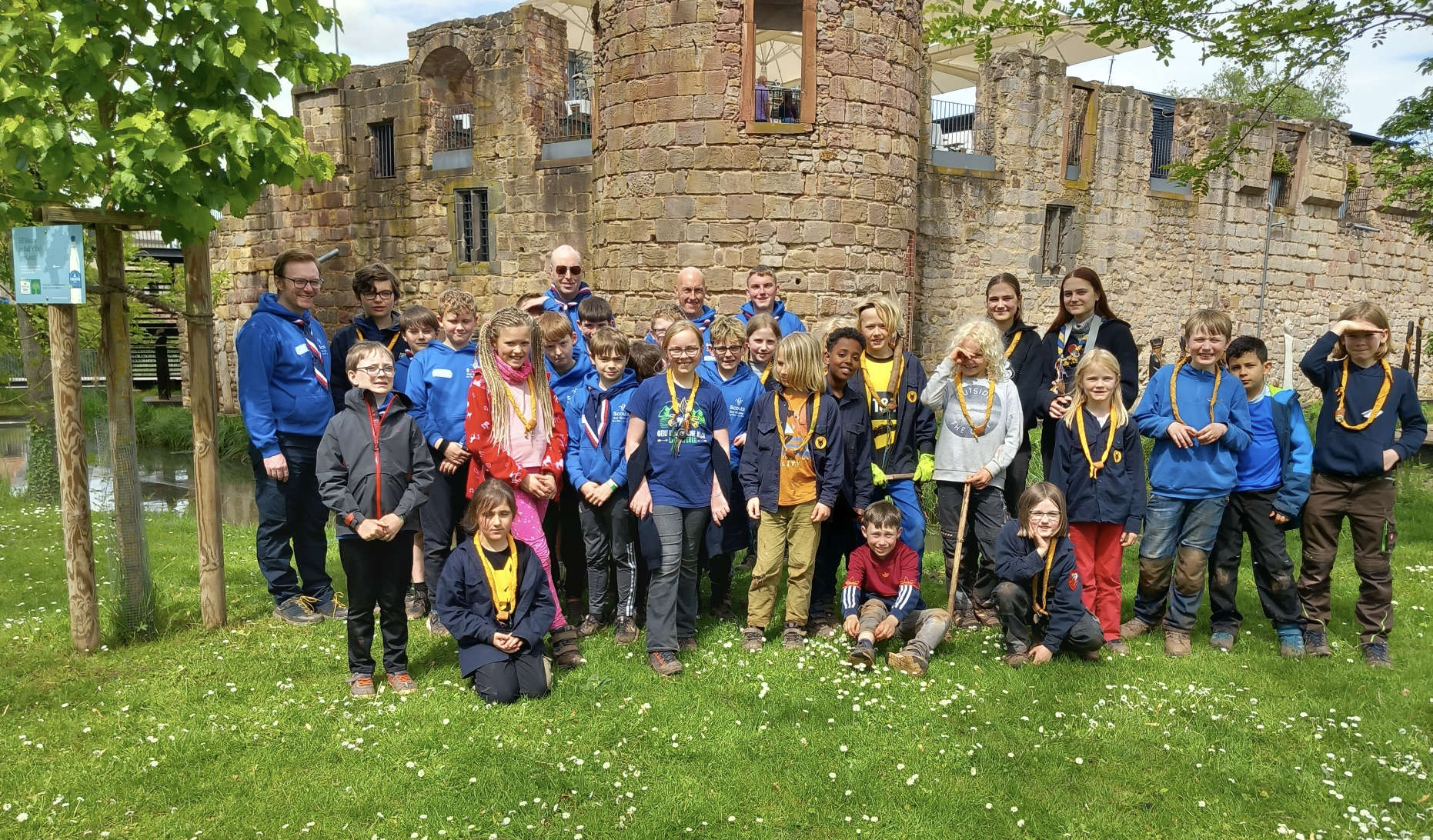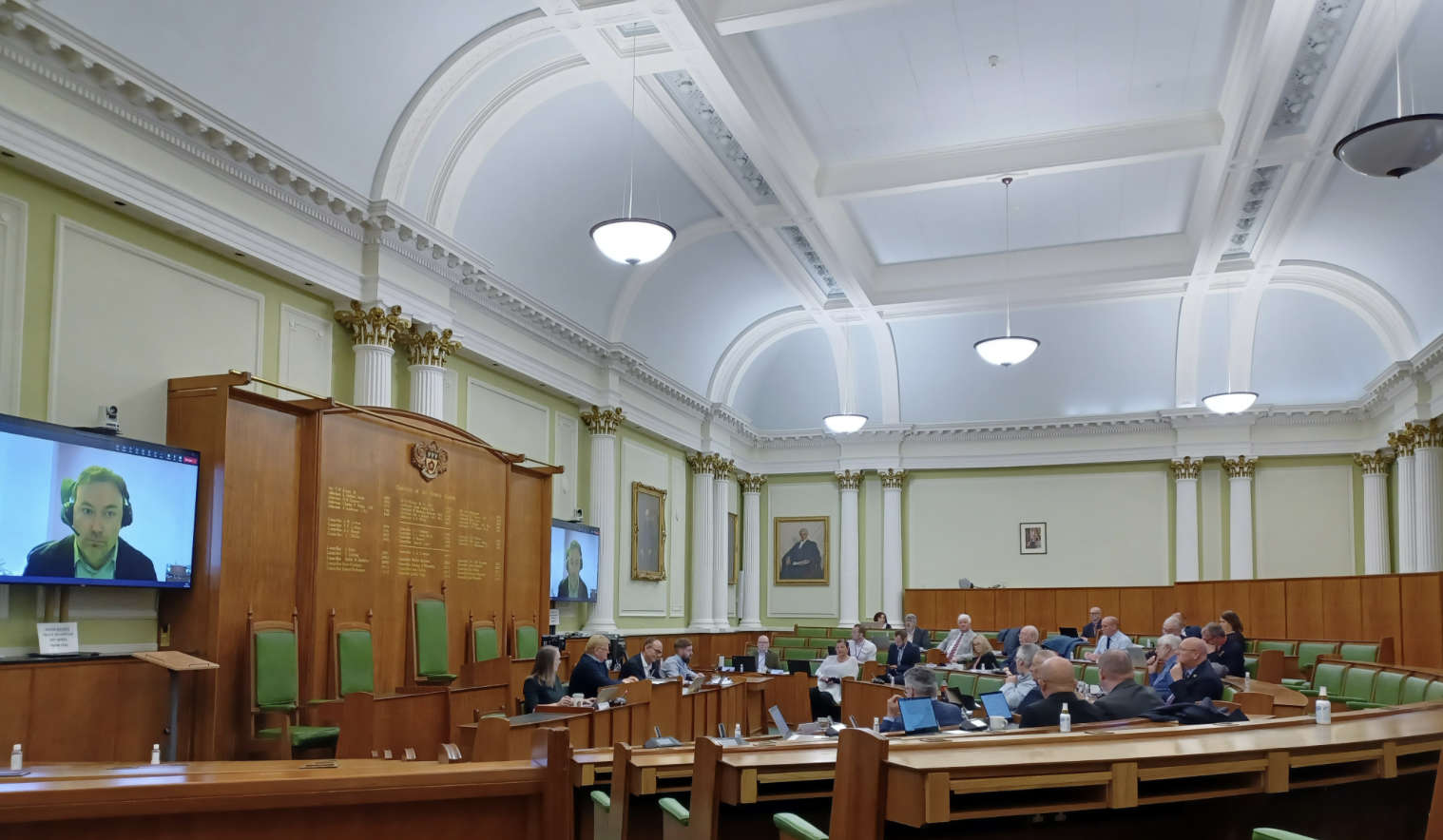
East Midlands Ambulance Service bosses described Monday's strike action as the "most challenging so far" as more than half of on-duty staff took part in what was the biggest strike in NHS history.
The union GMB, which has the greatest share of East Midlands Ambulance Service (EMAS) union membership, secured a mandate for the strike alongside NHS nursing colleagues, who were represented by the Royal College of Nursing (RCN).
It was the latest strike to take place in the ongoing dispute between unions and the Conservative Government over pay and working conditions.
On Monday (February 6) both sides accused each other of failing to negotiate.
GMB is asking for a pay rise above inflation – currently 10.5 per cent, and other measures on working conditions and hours.
The Government says increasing this year’s existing pay award, worth roughly 4.75 per cent extra, is unaffordable, and instead says unions should start talking to them about next year’s deal.
During an EMAS board meeting on February 7, service bosses said it was the most challenging strike day so far, with preparations already under way for the next strike on February 20.
Ben Holdaway, Director of Operations, said: “Overall just short of 60 per cent of people on duty took some form of action, whether that was a full strike or working to delegations, we’ve agreed it was 59 per cent of the workforce on duty.
“That was very similar in terms of Unite.
“What we saw yesterday, which was different to the strike day on January 11, was our activity shifted.
“We saw more activity than we have seen on previous strike days, so I am comparing strike day to strike day.
“In terms of calls, we had 12 per cent more calls than January 11, which is about 250 calls more. Incidents, there was a 25 per cent increase in incidents, when you look at the two strike days, which is about just under 500 more incidents.
“When you look at responses it was 15 per cent more.
“Yesterday was the most challenging strike day we’ve had so far, with jobs outstanding and pressure on service delivery.”
Mr Holdaway said all outstanding jobs had been cleared as of 8am on February 7.
Richard Henderson, the Chief Executive of EMAS, stressed it was a dispute between staff and the Government, not the organisation itself.
Board members were told there was clear respect between those who took part in strike action, and those who did not.
Respect also continues between the organisation, unions and employees, he added.
Mr Henderson said: “We just need to make sure this issue is brought to a conclusion as quickly as possible
“The longer this goes on the more likely those pressures will get extended.
“Our approach with the trade unions and colleagues will continue in the vein that it has done so far.”
In a statement Health and Social Care Secretary, Steve Barclay, added: “NHS contingency plans are in place but these co-ordinated strikes will undoubtedly have an impact on patients and cause delays to NHS services.
“We accepted the recommendations of the independent pay review body to give over one million NHS workers, including nurses and ambulance workers, a pay rise of at least £1,400 this financial year, on top of an increase the previous year when wider public sector pay was frozen.
“I have been having constructive talks with unions about what is affordable for 2023/24.”
Read more from the Glossop Chronicle
Click here for more of the latest news
Click here to read the latest edition of the paper online
Click here to find out where you can pick up a copy of the paper


 Partington Theatre is opening its doors to the public this Saturday
Partington Theatre is opening its doors to the public this Saturday
 Cubs visit Glossop's twin German town for a long weekend
Cubs visit Glossop's twin German town for a long weekend
 Council leader accused of “chucking his teddies out of the pram”
Council leader accused of “chucking his teddies out of the pram”
 Glossop author's first book becomes best-seller on Amazon
Glossop author's first book becomes best-seller on Amazon



